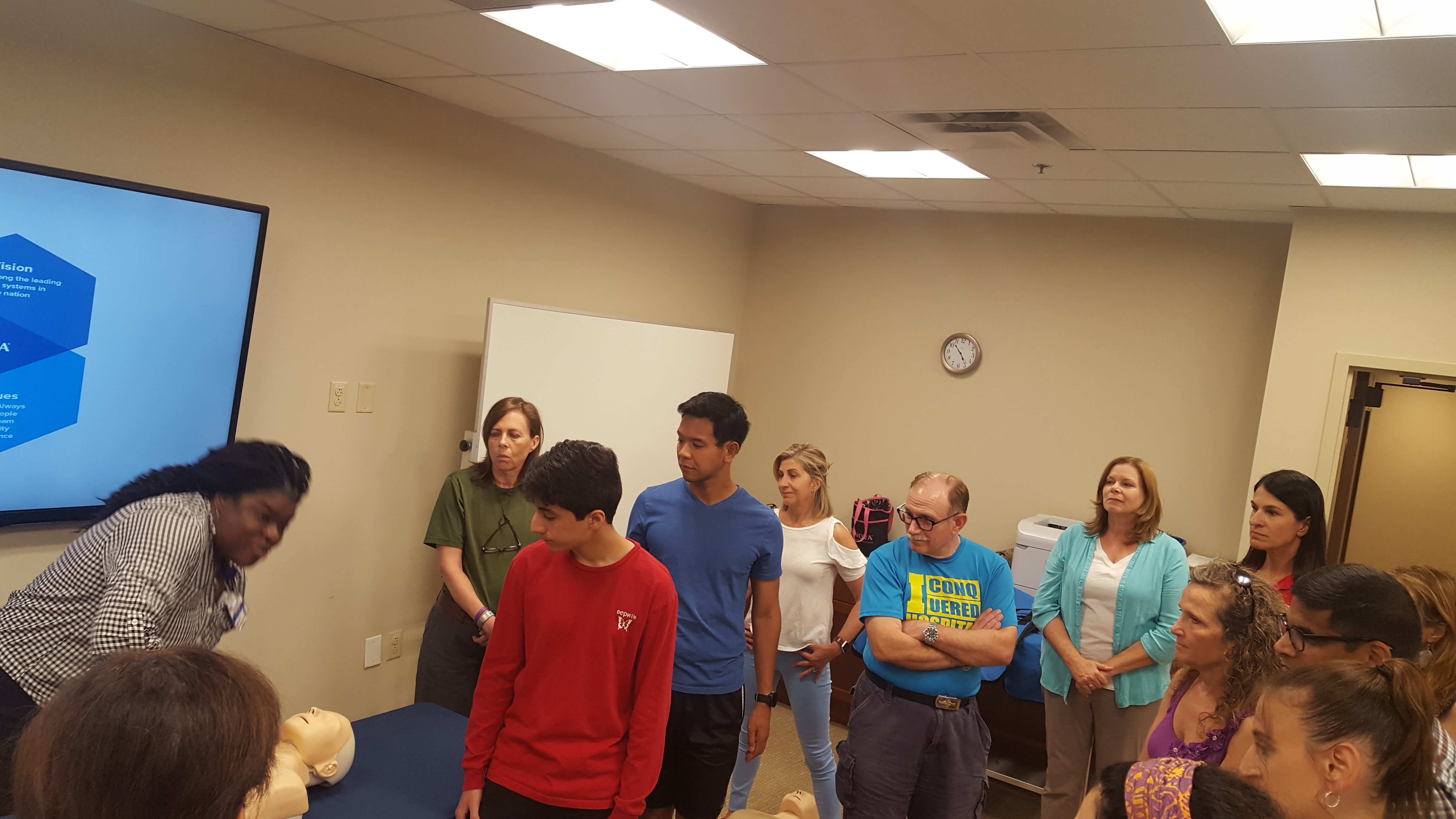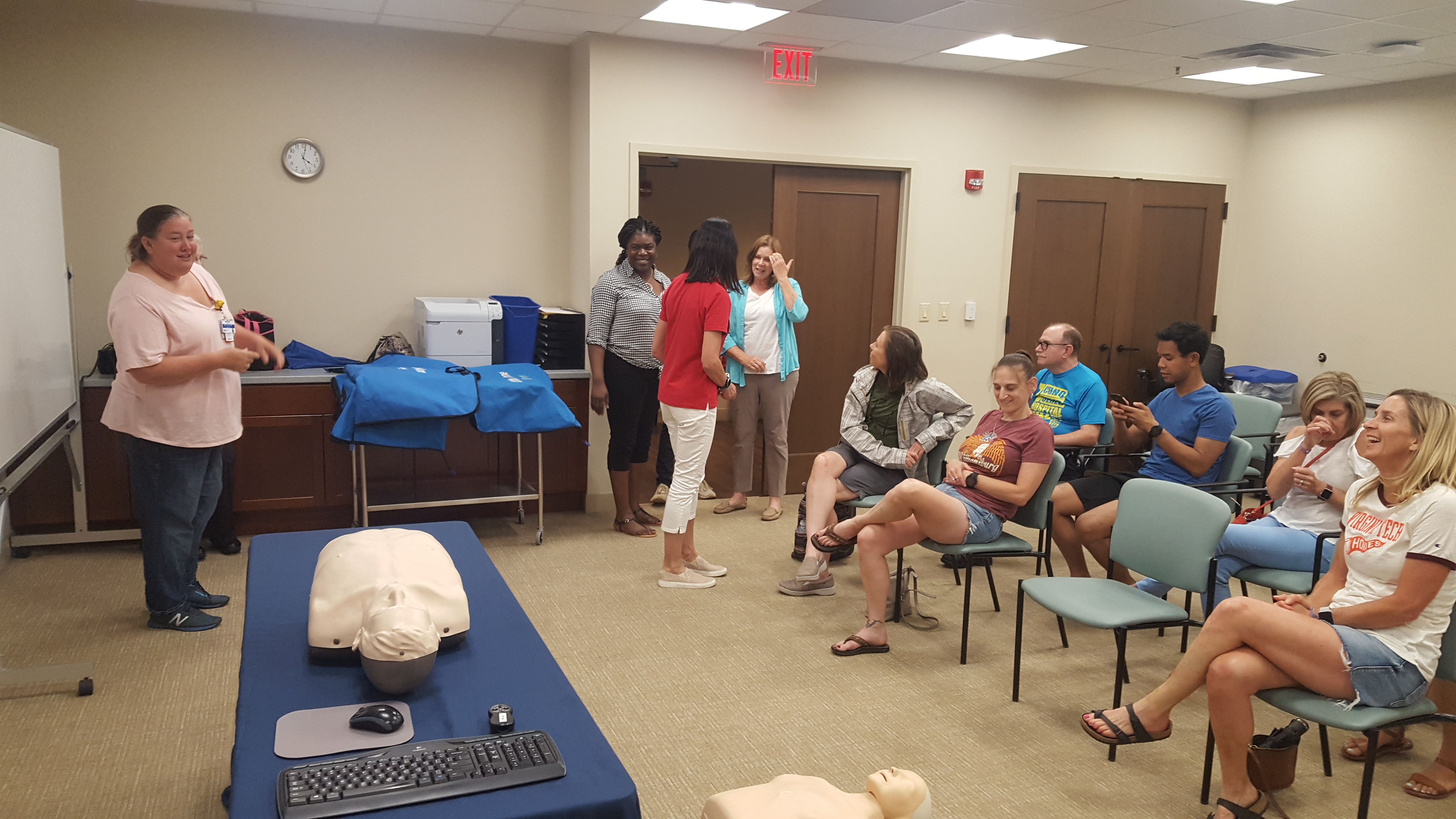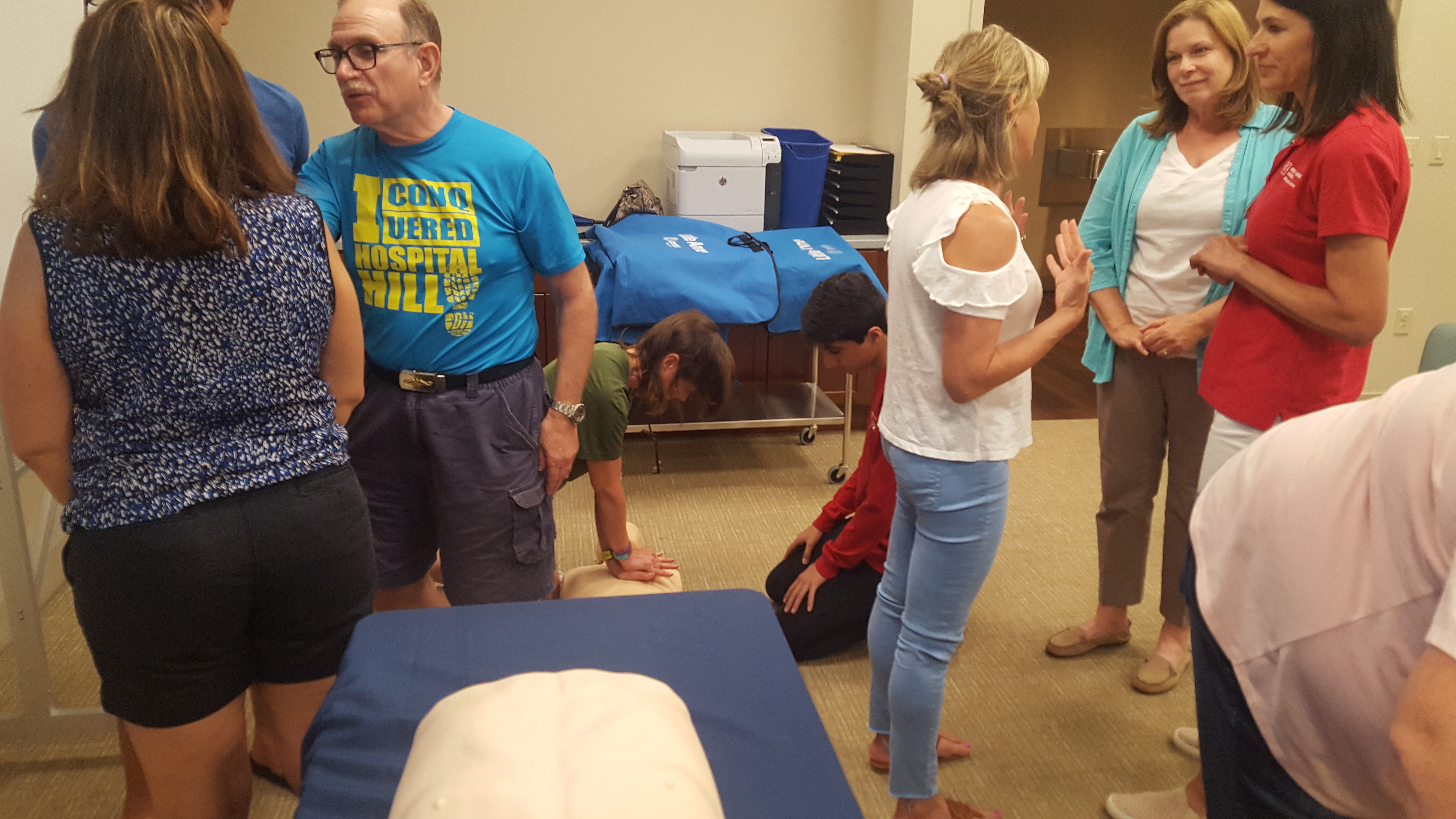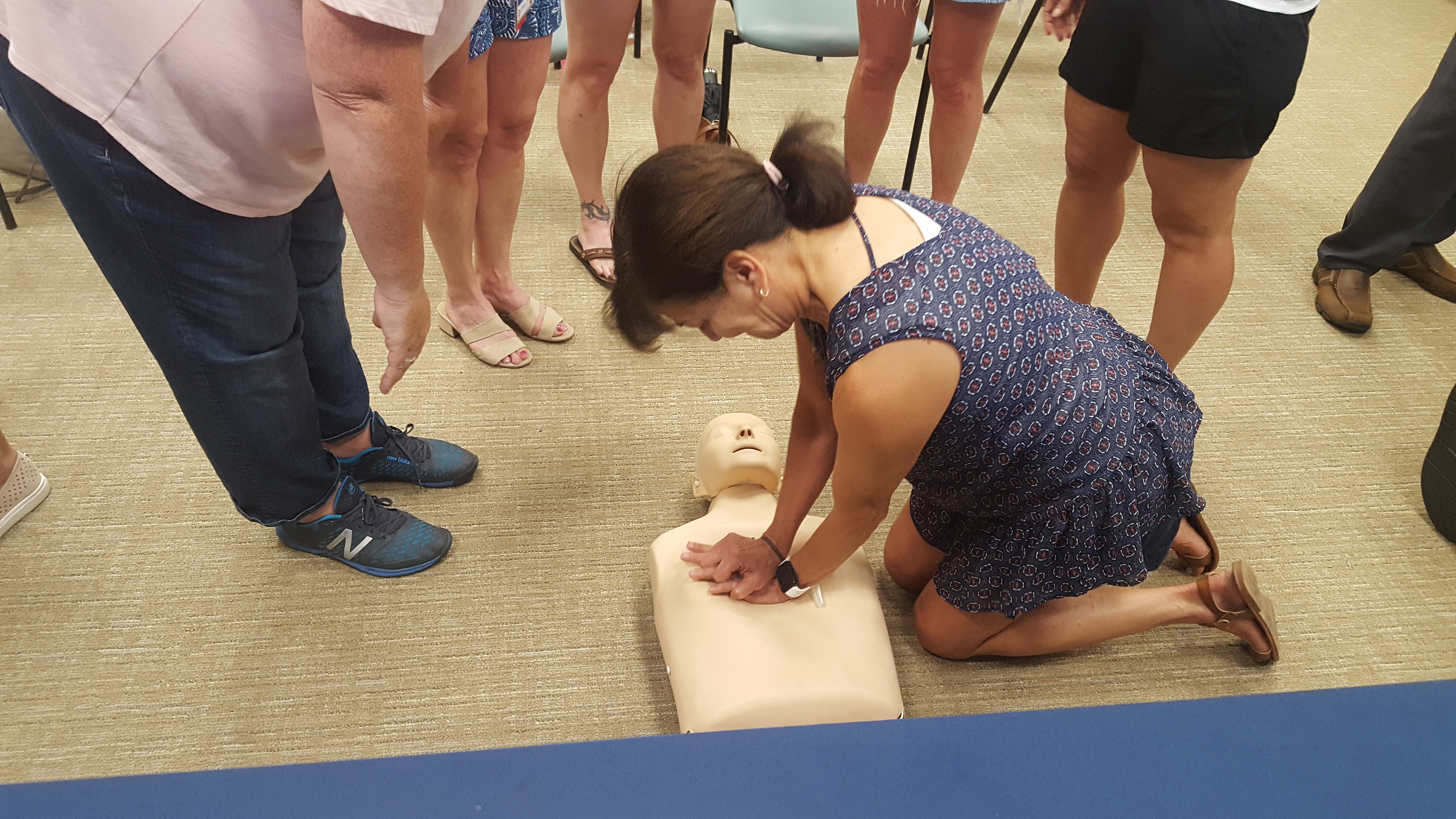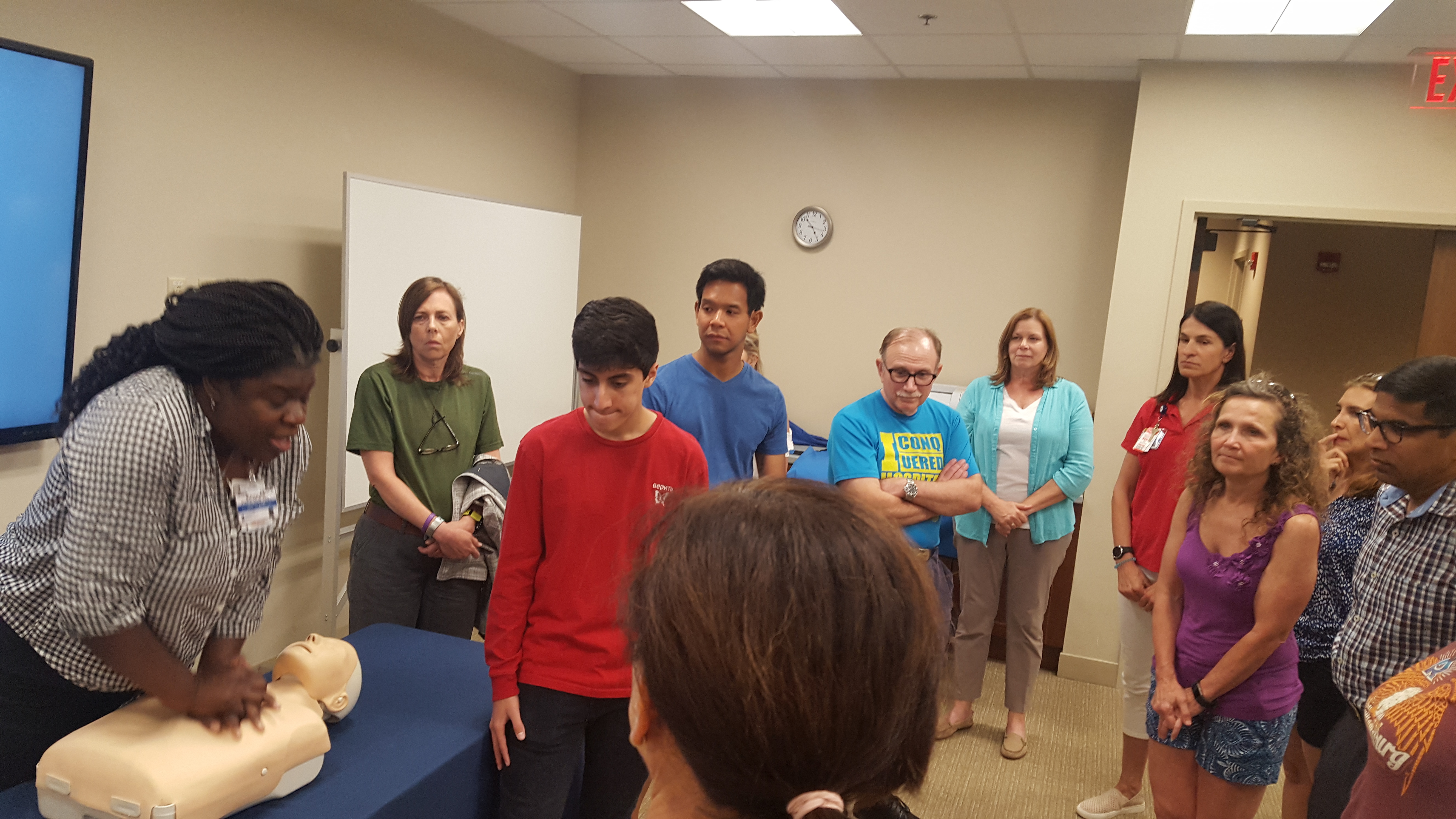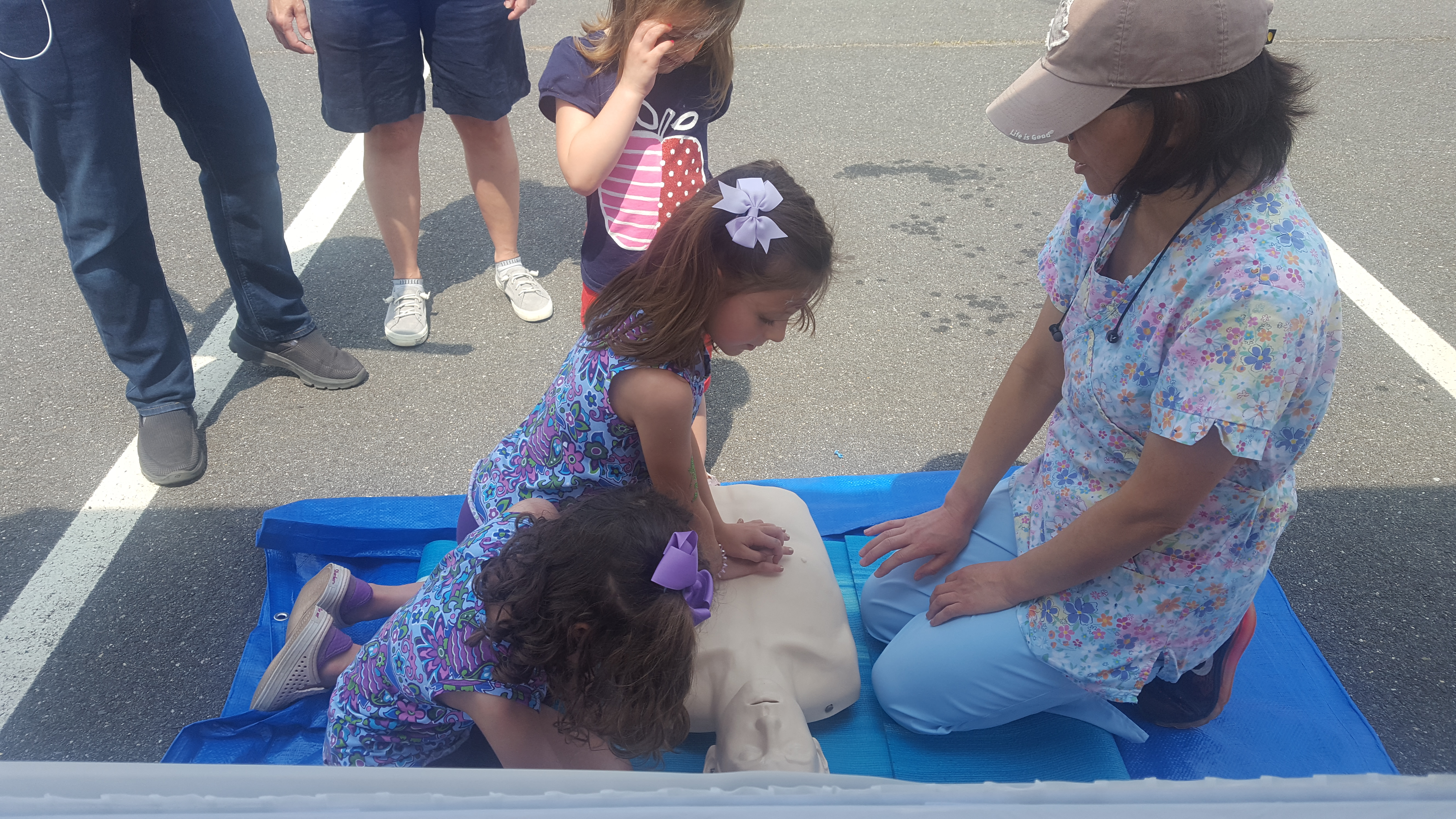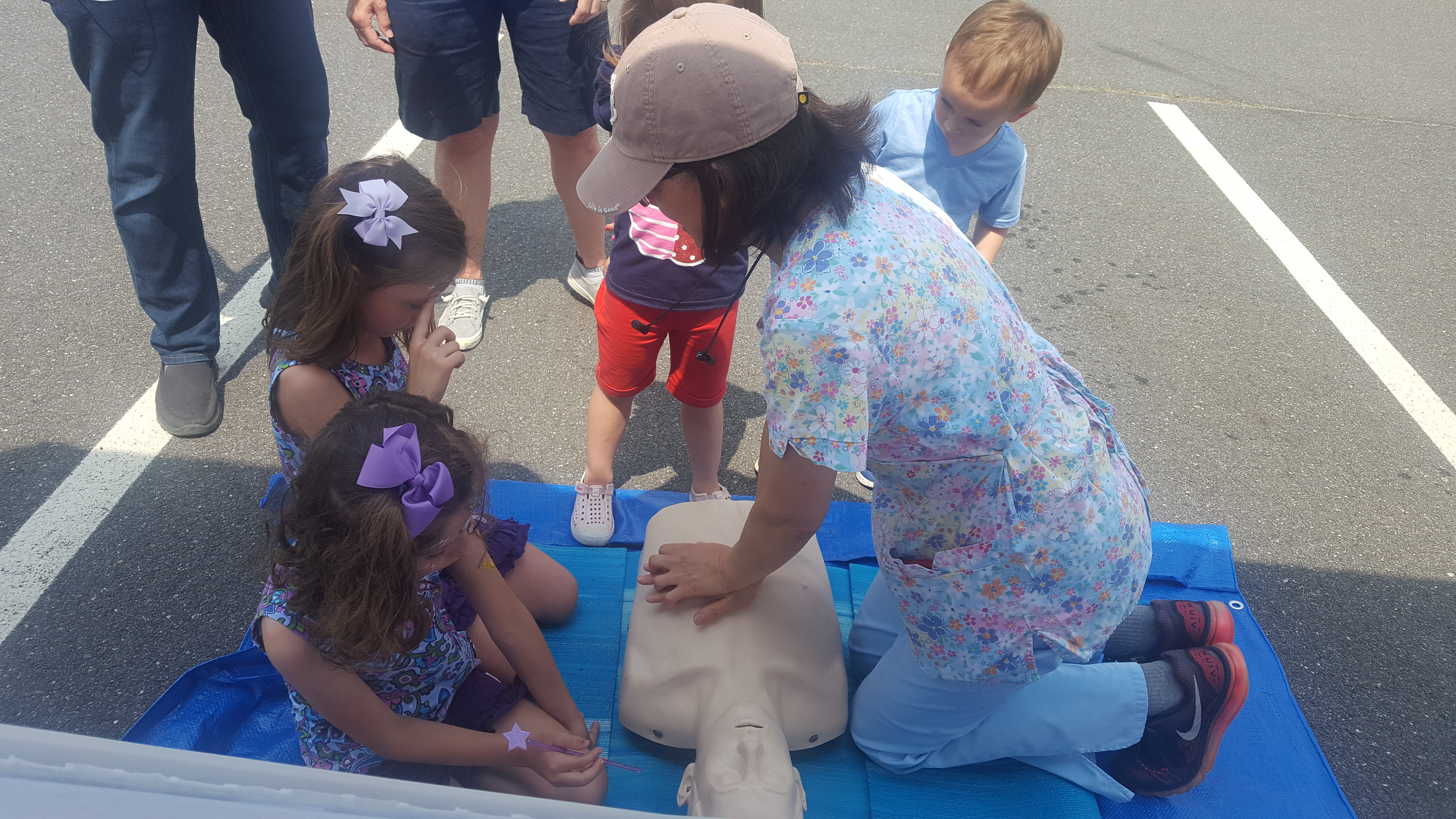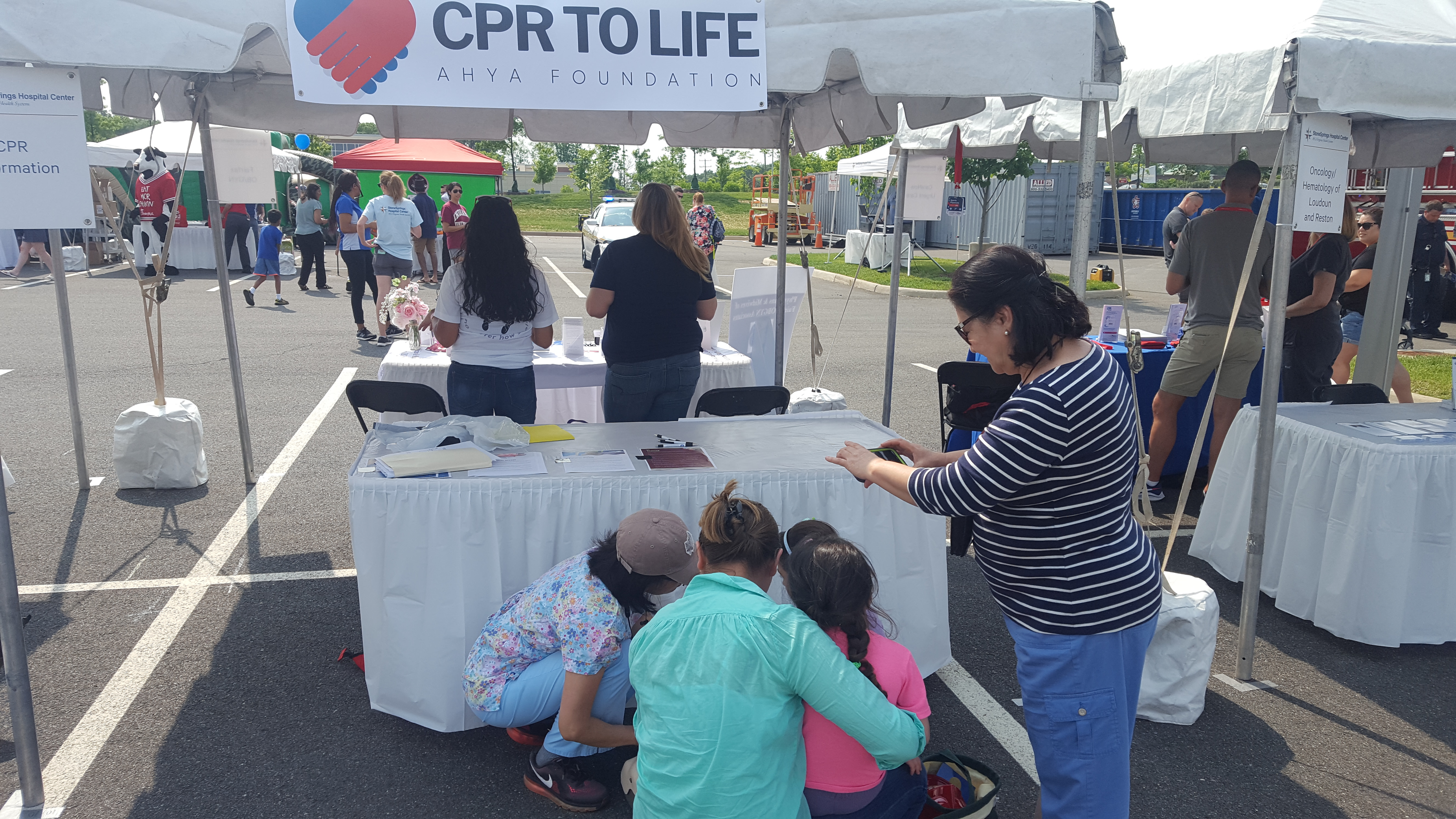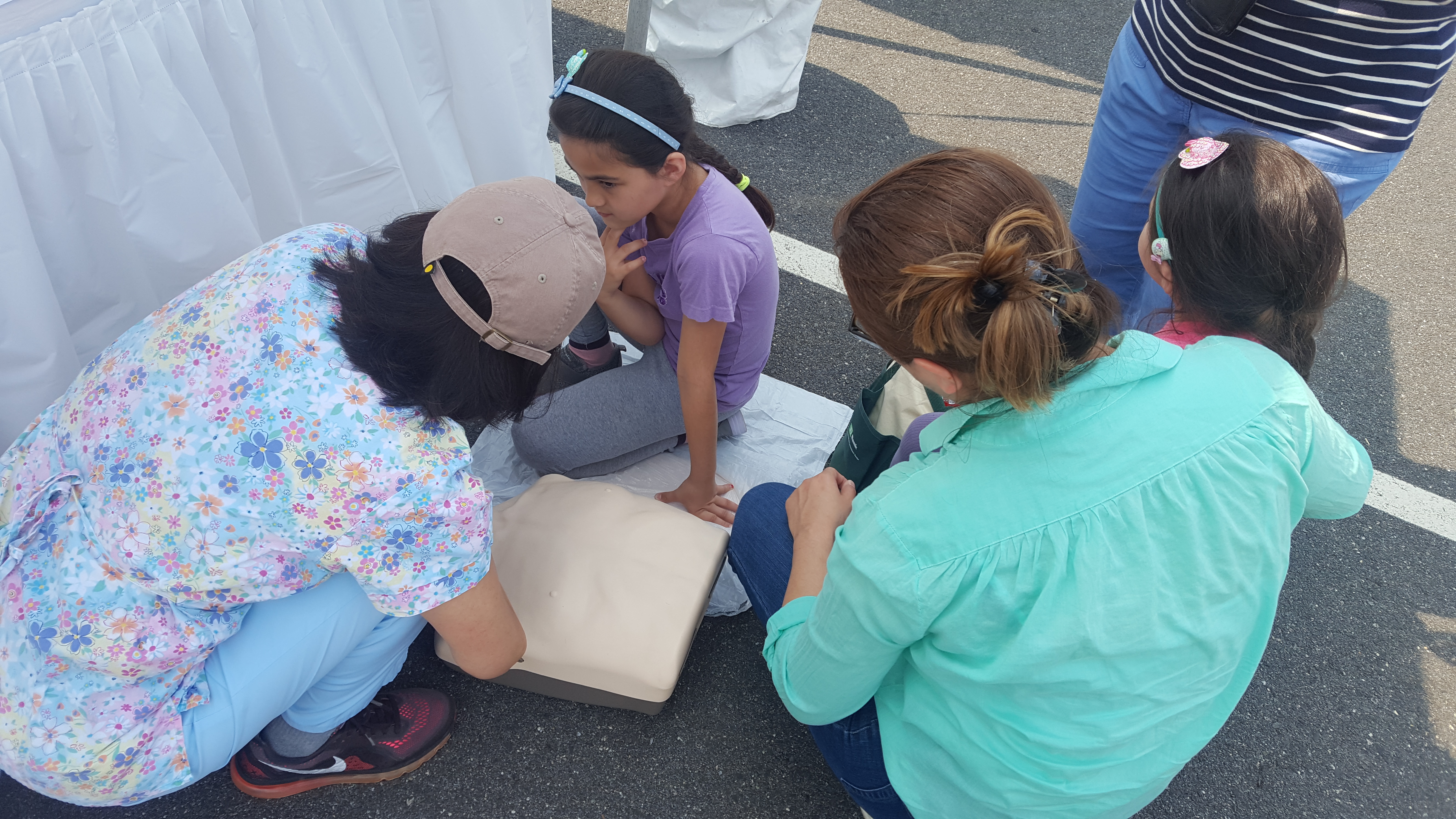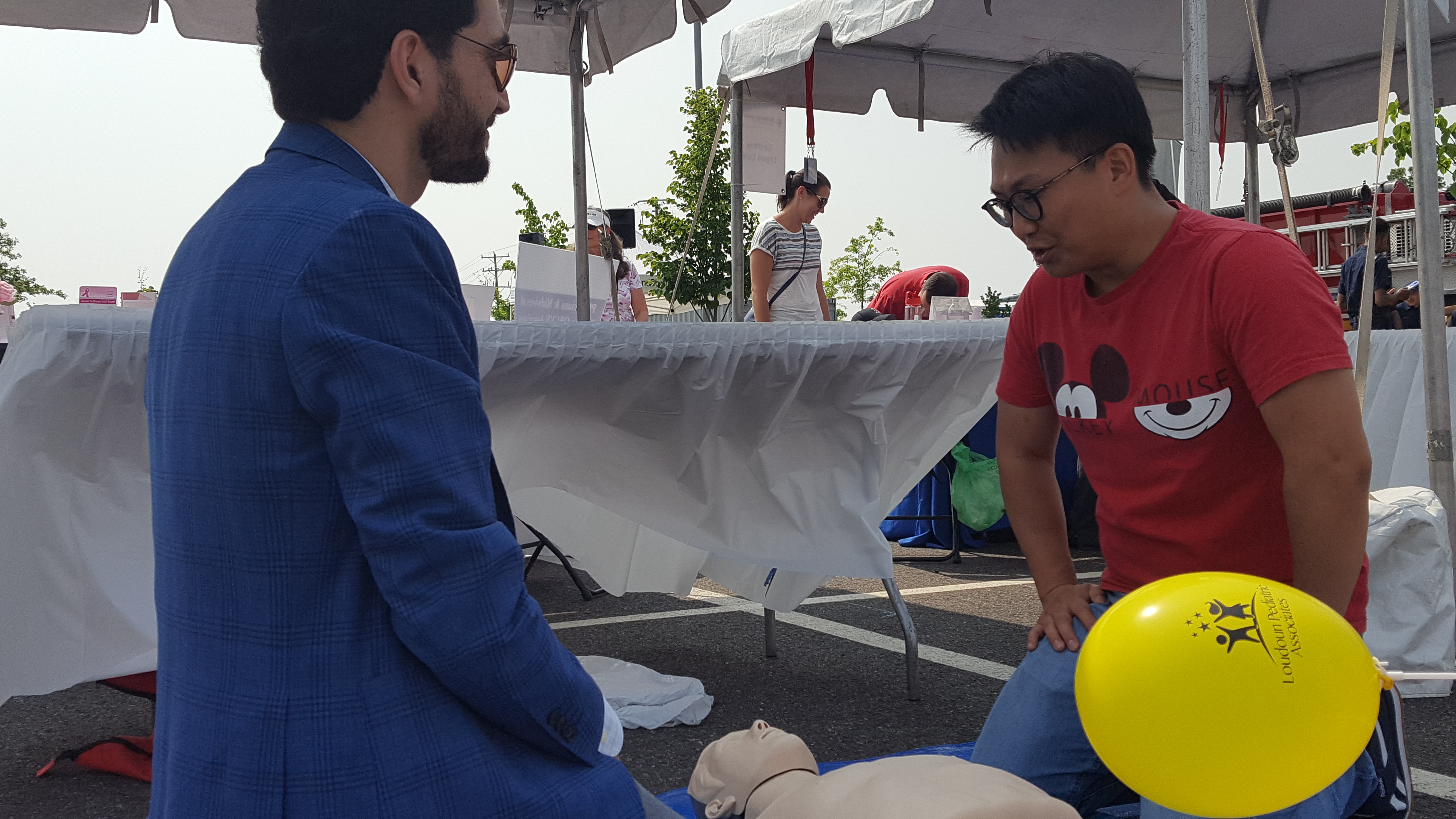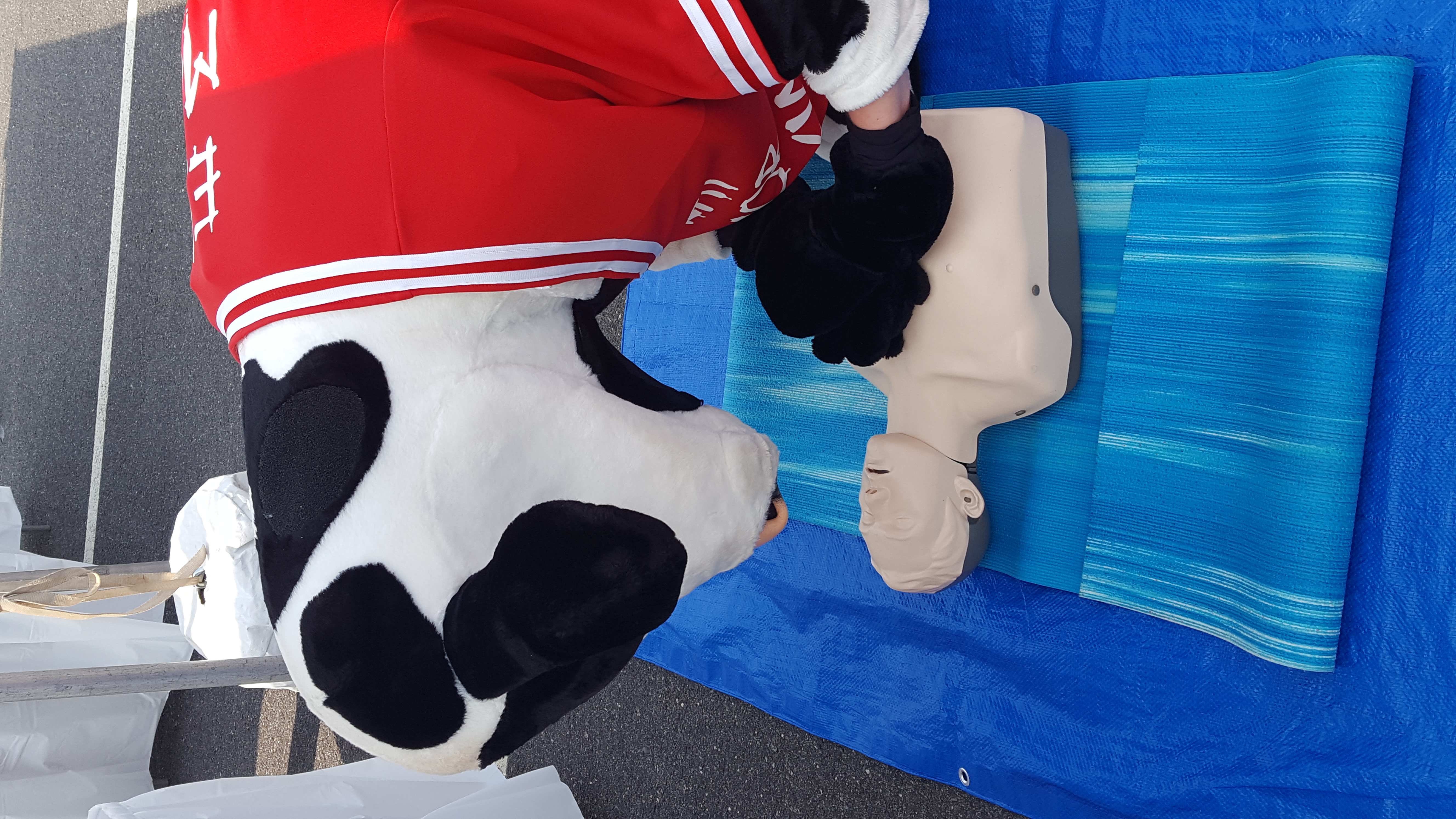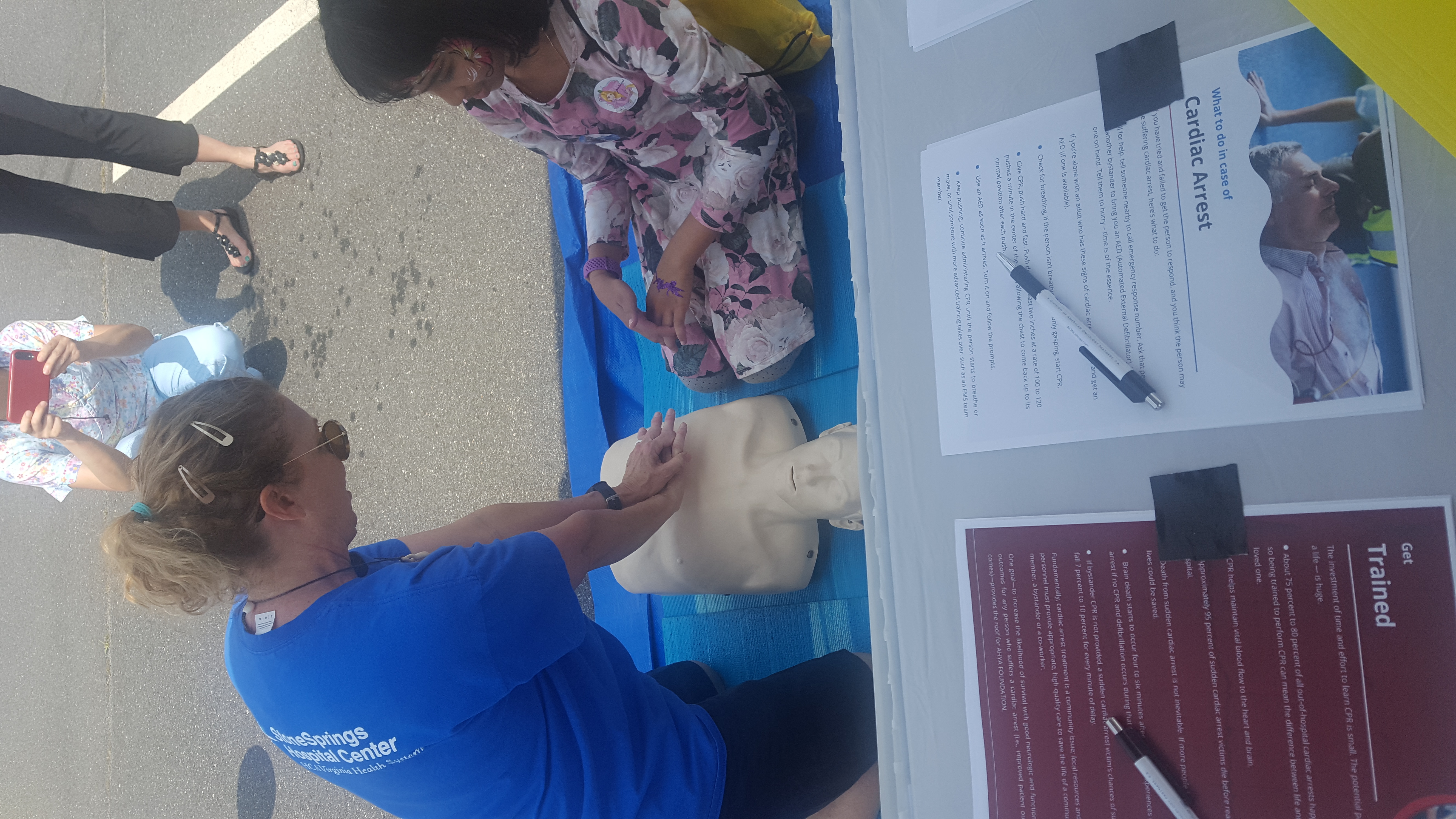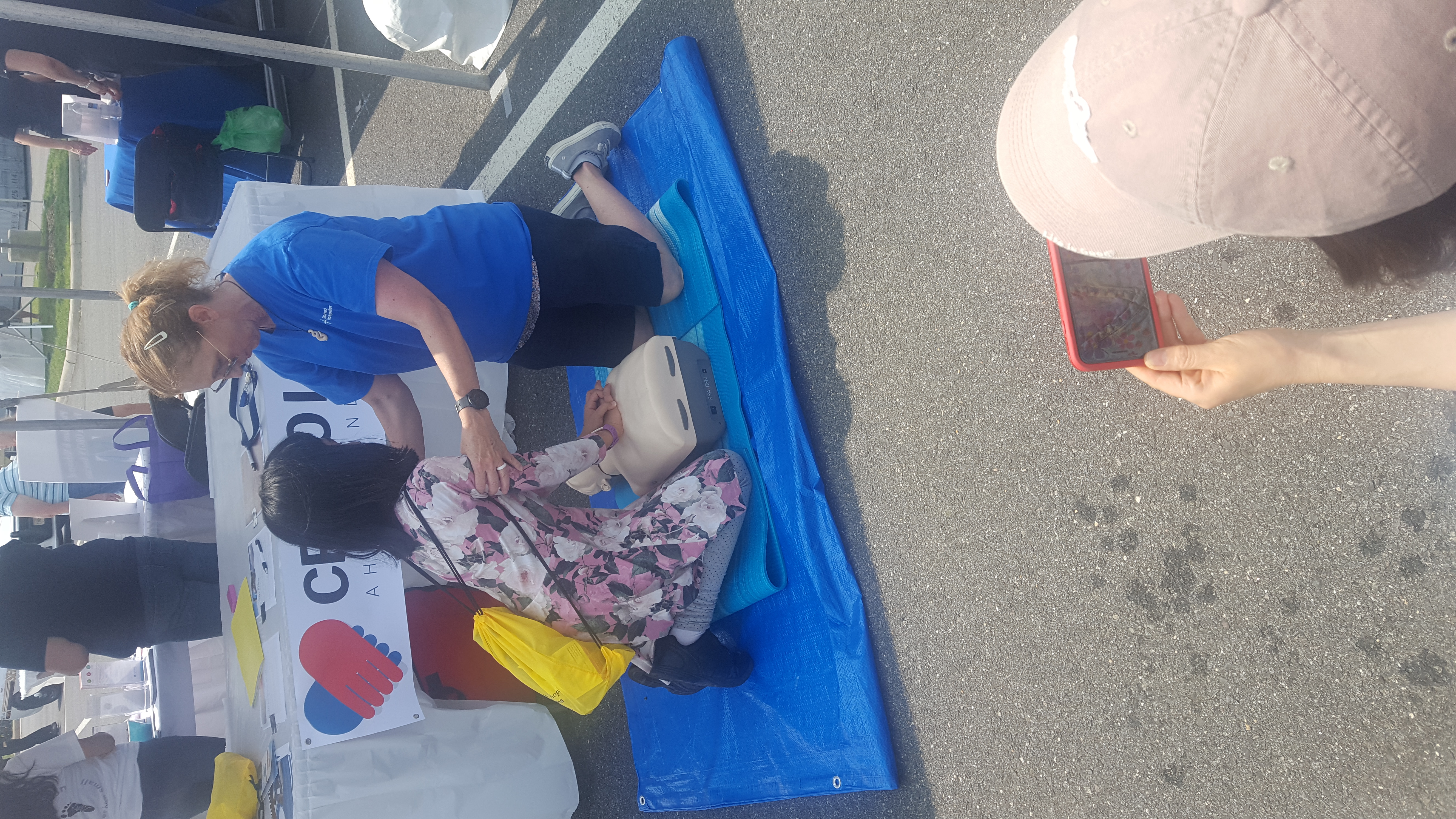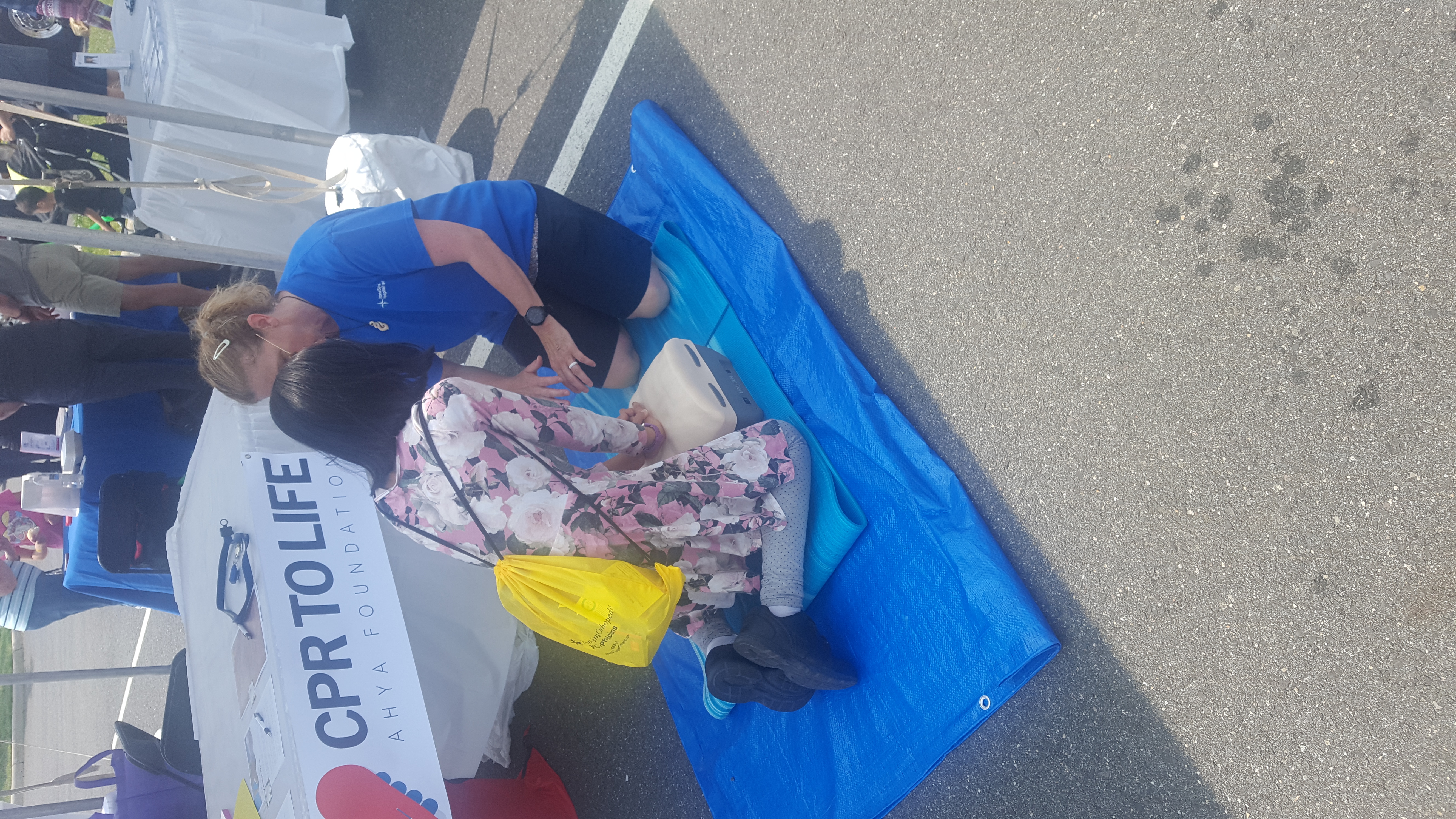United States
Community Events
What To Do In Case Of
Cardiac Arrest
If you have tried and failed to get the person to respond, and you think the person may be suffering cardiac arrest, here’s what to do:
Yell for help Tell someone nearby to call 911 or your emergency response number. Ask that person or another bystander to bring you an AED (automated external defibrillator), if there’s one on hand. Tell them to hurry – time is of the essence.
If you’re alone with an adult who has these signs of cardiac arrest, call 911 and get an AED (if one is available).
Hand-only CPR at Stone Spring Hospital
Get in touch with us

